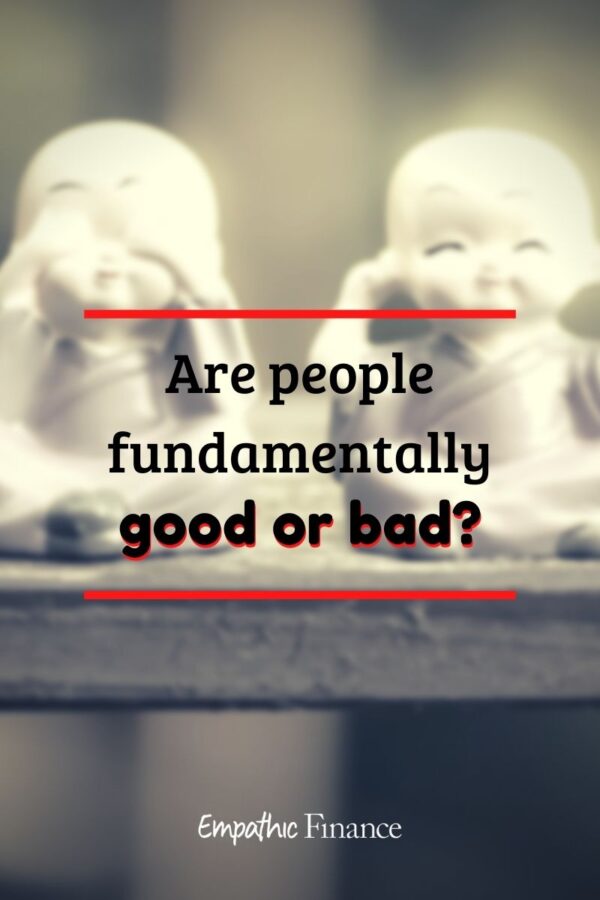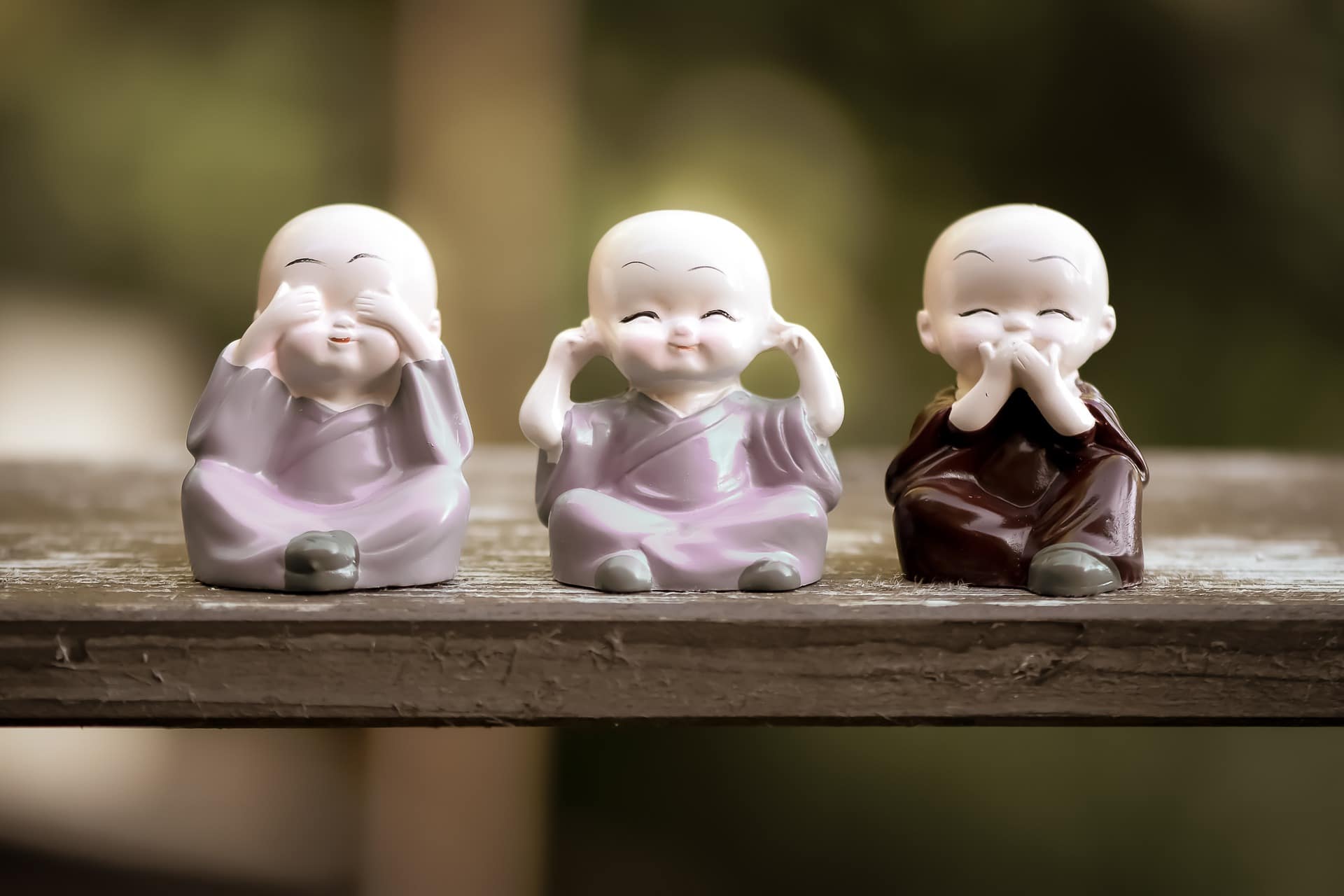A false choice on judging people’s virtue is nonetheless responsible for whether we err on the side of helping too many or too few people.
Oversimplifications are comforting. For some, the importance of saying, “this is right, and this is wrong” cannot be understated.
But they are as dangerous as they are comforting.
Back when I was a kid and watched cartoons on TV after school, the ones I saw, stuff like Transformers and GI Joe and the like, were all very simplistic. There were the good guys and the bad guys, and by the end of the half hour, the good guys would always prevail.
Once I realized this, those cartoons became a lot less interesting for me.
But the popularity of those showed that people want the good guys to win and the bad guys to lose. It’s clean, it’s simple, and it doesn’t require any difficult questions.
However, the really important questions aren’t simple to answer. Black and white is replaced by gray. And this can be uncomfortable.
That said, sometimes simplification provides helpful guardrails and context. You know the extremes, so you can know that reality lies somewhere in the middle.
And so, I ask you to think about the following question: do you believe that people are fundamentally good or fundamentally bad?

Table of Contents
What does fundamentally good even mean?
Let’s define some terms here.
When I say “fundamentally good”, I mean: civic-minded, working fairly for one’s own interests without trying to harm others in the process.
When I say “fundamentally bad”, I mean: mostly selfish, willing to harm others if it means shoring up one’s own success.
This may sound like a false choice, but I find it instructive enough that it can effectively inform all of your financial and political priorities right from this initial premise.
Who do we help?
Some ideas fall straight from these tenets.
If you believe that people are fundamentally good, then you would seek to help as many people as possible. You would support policies that seek to offer protection not only to the majority, but also everyone else. You would see injustice to the vulnerable as a problem to be rectified.
If you believe that people are fundamentally bad, then you would wish to require people to make their own way without assistance. Protections only encourage people’s worst instincts such as idleness and greed. Fewer protections in place will encourage virtue, in that they force people to work against their own nature to succeed. And if people don’t succeed, you can describe that as a failure on their behalf.
Where do we lean?
There is no perfect policy, nothing that isn’t slightly unjust in some way to some people. There is no financial benefit that doesn’t exclude some people who might need it or include some who don’t.
Think: Unemployment. Public assistance. Capital gains. Required minimum distributions. Estate tax. Health care coverage.
All of these are imperfect, and the policies are decided by people who fall more or less on side of the people are good/bad spectrum.
The imperfection requires that policies and beliefs lean in one direction or another.
If you believe that people are fundamentally good, then you want to err on the side of helping as many people as possible, knowing that there are some who will cheat and take advantage of the system, but being okay with that, as those are the outliers.
If you believe that people are fundamentally bad, then you want to err on the side of helping as few people as possible, as the vast majority will try to cheat and take advantage of the system.
And to my eye, it’s not hard to see where our policies fall.
A choice as much as a belief
I choose to believe that people are fundamentally good and are therefore deserving of protections and help.
I say “choose to believe” specifically, because I much prefer the world that follows from that belief.
I don’t believe in punishing people for failures that may not be their own. I don’t believe that if you’re poor or financially struggling, it’s your fault and therefore not worthy of help. I would much rather support policies that allow some people to game the system rather than try to stamp out all graft at the expense some people who legitimately need help.
Because, let’s face it, we all need some kind of help. No one is self-made. Everyone is going to lose their job at some point. Maybe you’re lucky and you don’t have a medical condition that prevents you from working, but you might develop one some day. Will that mean you’re idle and a drain on the system?
Furthermore, I believe that we need to move away from thinking that “those other people” are the problem. Every one of us is trying to make it the best that we can. And if we have some terrible ideas that harm others, they are just as likely to be due to desperation as malevolence.
Imagine a world where we believed in the best in our fellow humans, and took care of them, through shared investment in our well-being. Wouldn’t that be a better world?
Where do any of us get off saying that we’re better than anyone else? I’d say to prove it, but I know you can’t. I have a gut feeling that those who are on the disadvantaged side of things are taught to blame their problems on other people who are disadvantaged by those who wish to obscure that it is our shared policies, not other people, that cause so many people to be disadvantaged.
And who makes those policies? Not the disadvantaged, that’s for sure.
I can’t change policies (though I will vote), but I can speak of the world I choose to build, where shared responsibility is more crucial than individual responsibility, people are fundamentally good, and that everyone, not just “our people”, are deserving of our support.
And if some people take advantage of the system? Fine. We’ll all be better off anyway.
It won’t make the best Saturday morning cartoon, but I’m okay with that.

